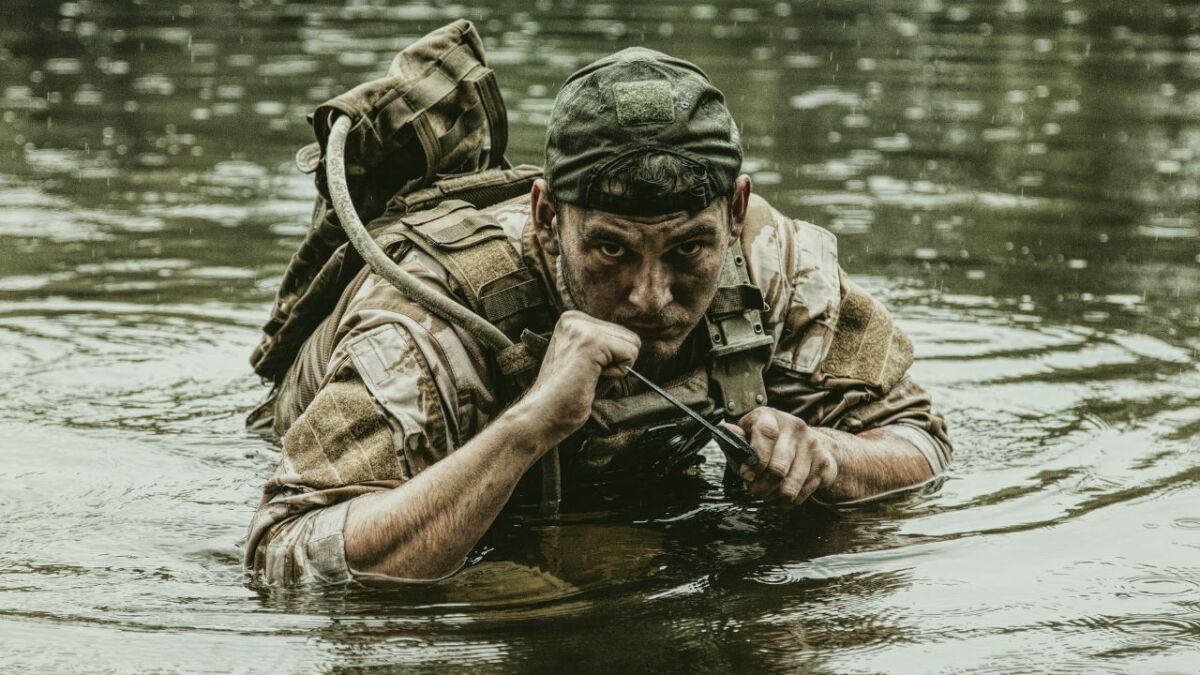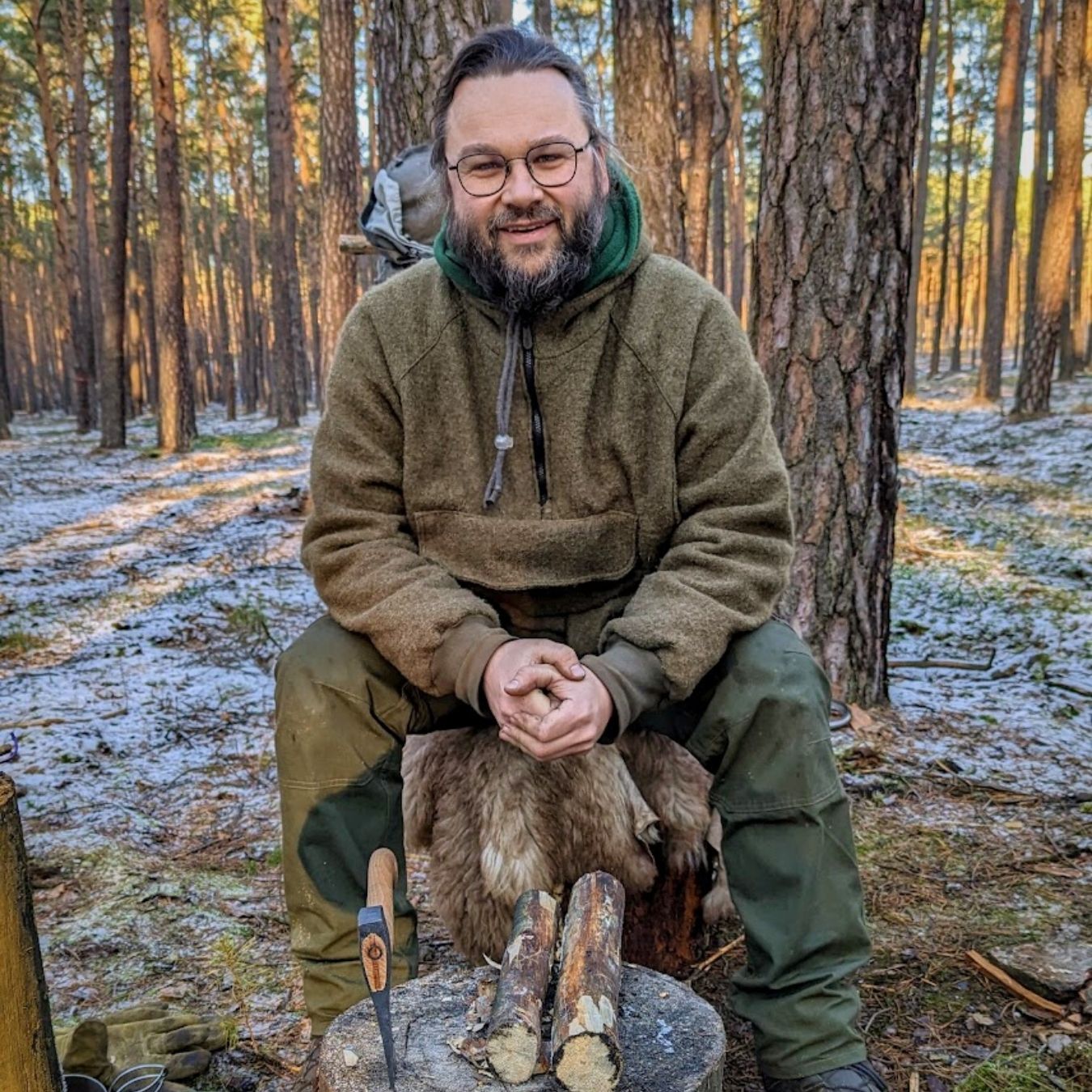
Survival
Nomen
Meaning
Survival is the art of staying alive and thriving in challenging outdoor environments. It encompasses a range of skills and knowledge, including bushcraft, wilderness navigation, and emergency preparedness. In the context of outdoor activities such as camping, hiking, and wilderness exploration, survival is crucial for ensuring personal safety and well-being. Understanding how to find and purify water, build shelter, start a fire, and forage for food are essential survival skills. Being able to adapt to changing circumstances, make quick decisions, and stay calm under pressure are also key aspects of survival.

Examples
„Survival is all about being prepared for any situation. Whether you're lost in the wilderness or facing a natural disaster, having the right skills and knowledge can mean the difference between life and death. Here are five examples of how the word "survival" is used in everyday conversations: 1. "I always carry a survival kit with me when I go hiking. It includes essentials like a compass, fire starter, and first aid supplies." 2. "During our camping trip, we had to rely on our survival skills to find food and shelter. It was a great opportunity to put our bushcraft knowledge to the test." 3. "In a survival situation, it's important to stay calm and think rationally. Panic can cloud your judgment and make it harder to make the right decisions." 4. "I recently took a survival course to learn how to build a shelter from natural materials. It was amazing to see how resourceful you can be in the wilderness." 5. "Survival isn't just about physical skills; it's also about mental resilience. Developing a positive mindset and staying motivated can help you overcome even the toughest challenges."“
„Survival is about being prepared and having the necessary skills and knowledge. It's about relying on your instincts and making the right decisions in challenging situations. Whether you're hiking, camping, or facing a disaster, survival skills are essential for your safety and well-being.“
„Survival is all about being prepared and resourceful in the wilderness. It's about knowing how to survive in any situation, no matter how challenging. Whether you're lost in the woods or stranded on a deserted island, survival skills are essential for staying alive. Here are five examples of how the word "survival" is used in everyday conversations: 1. "I learned some valuable survival skills during my wilderness training. Now I feel confident that I can handle any outdoor emergency." 2. "Survival experts recommend always carrying a fire starter and a knife when venturing into the wilderness. These tools are crucial for staying warm and preparing food." 3. "In a survival situation, finding clean drinking water is a top priority. Knowing how to purify water using natural methods can be a lifesaver." 4. "When hiking in the mountains, it's important to be aware of potential dangers like avalanches. Understanding how to read the terrain can greatly increase your chances of survival." 5. "During a camping trip, my friend got lost in the woods. Thanks to his survival skills, he was able to build a shelter and signal for help until rescuers arrived."“
„Survival is not just a hobby, it's a mindset. It's about being prepared for the unexpected and having the knowledge and skills to overcome any obstacle. So whether you're an outdoor enthusiast or simply want to be better prepared for emergencies, learning about survival is always a wise choice.“
Origin
The word "survival" originates from the Latin word "supervivere", which means "to live beyond" or "to outlive". It has its roots in the concept of staying alive and enduring difficult circumstances.
The term "survival" has evolved over time to encompass a wide range of skills, knowledge, and strategies that enable individuals to adapt and thrive in challenging environments. It has become particularly associated with wilderness survival, where individuals rely on their resourcefulness, ingenuity, and connection with nature to overcome obstacles and ensure their survival.
In recent years, the popularity of survivalism and the interest in self-sufficiency and preparedness have further expanded the meaning of the word "survival". It now encompasses not only the ability to survive in the wild but also the skills and mindset needed to navigate through various crisis situations, such as natural disasters, economic downturns, or societal disruptions.
Survival has become a multifaceted concept that encompasses physical, mental, and emotional resilience, as well as practical skills such as shelter building, fire making, foraging, and first aid. It is a testament to the human instinct to adapt, overcome, and thrive in the face of adversity.
Synonyms
Survival, Wilderness survival, Outdoor survival, Bushcraft, Primitive skills, Nature skills, Survivalism, Self-reliance, Surviving, Endurance, Resilience, Staying alive, Staying afloat, Staying alive, Staying strong, Staying resilient
Antonyms
Comfort, Luxury, Security, Stability, Ease, Convenience, Indulgence, Protection, Comfort, Luxury, Security, Stability, Ease, Convenience, Indulgence, Protection
Relatives
Wilderness, Bushcraft, Outdoor, Adventure, Camping, Self-reliance, Primitive skills, Emergency preparedness, Wilderness, Bushcraft, Outdoor, Adventure, Camping, Self-reliance, Primitive skills, Emergency preparedness
Historical and cultural importance
Survival has a rich historical and cultural significance that dates back to the earliest days of human existence. Throughout history, survival skills have been essential for our ancestors to overcome the challenges of living in harsh and unpredictable environments.
In ancient times, survival skills were crucial for hunting, gathering food, and finding shelter. They were passed down from generation to generation, ensuring the survival of communities and tribes. These skills were often deeply rooted in cultural traditions and beliefs, shaping the way people interacted with their natural surroundings.
Survival also played a significant role in the exploration and colonization of new lands. Explorers and pioneers had to rely on their survival skills to navigate unfamiliar territories, endure extreme weather conditions, and overcome various obstacles. Their ability to adapt and survive in these challenging environments was crucial for the success of their expeditions.
During times of war and conflict, survival skills became even more critical. Soldiers and resistance fighters had to learn how to survive in hostile environments, evade capture, and sustain themselves with limited resources. These skills often became a matter of life and death, and they were honed through rigorous training and experience.
Today, survival skills continue to be relevant in various contexts. From outdoor enthusiasts and adventurers to emergency responders and military personnel, the knowledge of survival techniques can mean the difference between life and death in critical situations.
Overall, the historical and cultural significance of survival highlights its importance as a fundamental human skill. It represents our ability to adapt, overcome challenges, and thrive in the face of adversity.
More information about the term Survival
Survival: The Art of Thriving in the Wild
Survival is not just about staying alive in the wilderness; it's about thriving in the face of adversity. It's the art of using your skills, knowledge, and resources to overcome challenges and emerge stronger. Whether you find yourself lost in the woods, stranded in the desert, or facing a natural disaster, survival skills can mean the difference between life and death.
The Basics of Survival
Survival begins with preparation. Knowing how to find and purify water, build a shelter, start a fire, and forage for food are essential skills. These skills, combined with a calm and focused mindset, can help you navigate through even the most challenging situations.
Water is the most critical resource for survival. Knowing how to find and purify water sources is crucial to prevent dehydration. Building a shelter protects you from the elements and provides a safe place to rest. Starting a fire not only keeps you warm but also helps with cooking and purifying water. Foraging for food, identifying edible plants, and hunting or fishing can provide sustenance in the wild.
The Importance of Knowledge and Adaptability
Survival is not just about physical skills; it's also about knowledge and adaptability. Understanding the environment you're in, including its flora and fauna, can help you make informed decisions. Knowing how to navigate using natural landmarks or a compass can prevent you from getting further lost. Being adaptable and resourceful allows you to make the most of what you have and find creative solutions to problems.
The Mental Aspect of Survival
Survival is as much a mental game as it is a physical one. Maintaining a positive mindset, staying calm under pressure, and managing fear and stress are crucial for making rational decisions. Panic can cloud judgment and lead to poor choices. Developing mental resilience and practicing mindfulness techniques can help you stay focused and increase your chances of survival.
The Role of Bushcraft and Nature Skills
Bushcraft and nature skills are essential components of survival. These skills include knowing how to use tools, tie knots, navigate using natural signs, and identify and use medicinal plants. Learning these skills not only enhances your survival abilities but also deepens your connection with nature.
Survival as a Lifestyle
For some, survival is not just a skill set but a way of life. Living off the land, honing bushcraft skills, and embracing self-sufficiency are all part of the survival lifestyle. It's about reconnecting with nature, learning from indigenous cultures, and developing a deep respect for the environment.
In conclusion, survival is more than just staying alive; it's about thriving in the face of adversity. By mastering essential skills, cultivating a resilient mindset, and embracing the natural world, you can become a true survivor. So, whether you're an outdoor enthusiast, a prepper, or simply someone who wants to be prepared for any situation, learning the art of survival is a valuable investment in yourself.
Back to overview

